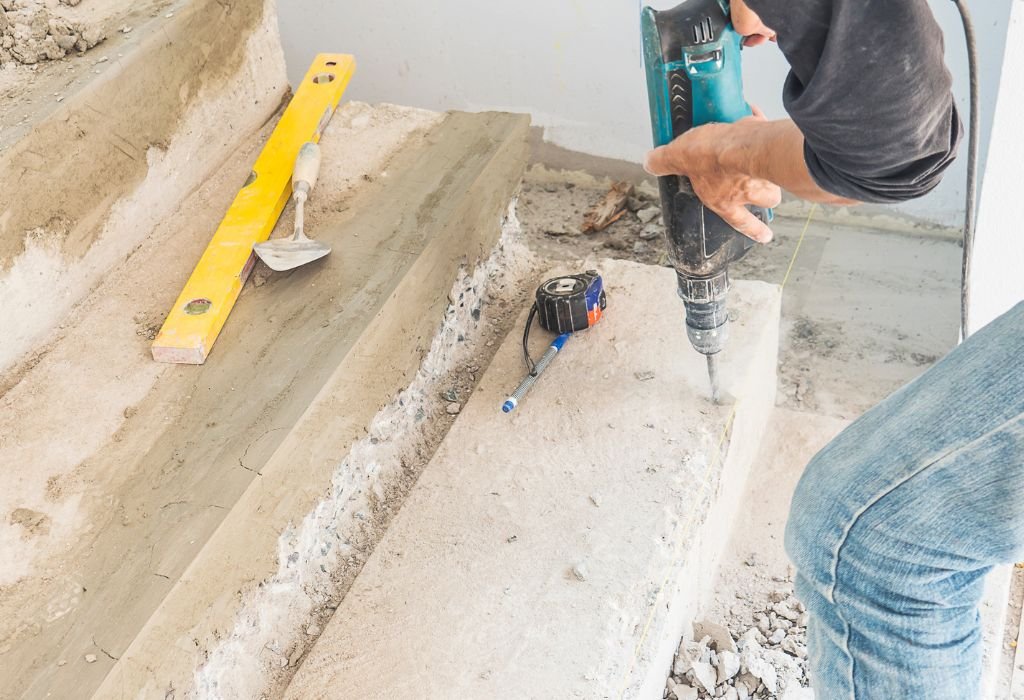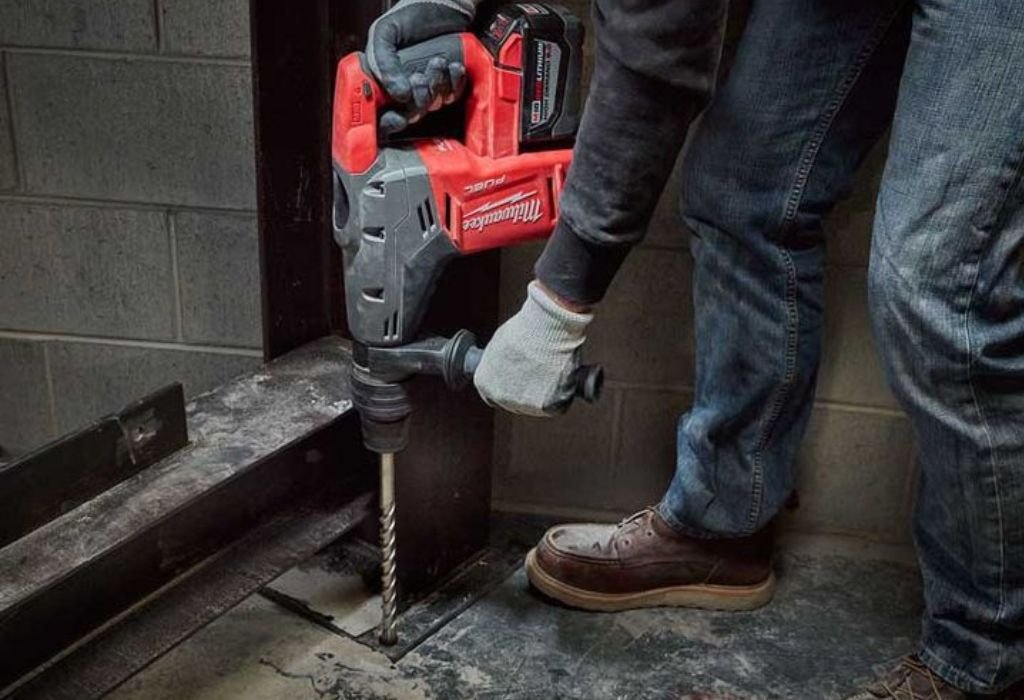Imagine starting a weekend project with the goal of hanging shelves on a brick wall. The rotary drill hums steadily, but the bit struggles to penetrate, leaving behind dust and frustration.
The question arises: are hammer drill bits the solution, and can they work in a rotary drill?
Many DIYers and professionals face this confusion when switching between tools.
The compatibility of bits and drills is often misunderstood, leading to wasted time, damaged equipment, or incomplete work.
This simple choice can determine whether a project finishes smoothly or stalls halfway.
Using the right bit for the right tool is not just about convenience.
It directly affects performance, accuracy, and tool lifespan. According to a global study, the power tools market is expected to reach over $36 billion by 2027, driven by growing DIY and construction demands (Statista).
With so many options available, selecting the wrong combination is a common mistake.
Safety is also at stake when using mismatched equipment. A report from OSHA highlights that improper tool use remains a leading cause of workplace accidents, accounting for thousands of preventable injuries annually (OSHA).
Even at home, drilling with the wrong setup can cause overheating, broken bits, or unexpected hazards.
This guide explores whether hammer drill bits truly work in rotary drills.
It breaks down compatibility, performance, risks, and safe alternatives so that every project can be completed with confidence and precision.
Understanding Rotary Drills vs Hammer Drills

Rotary drills and hammer drills may look similar, but their internal mechanisms set them apart. A rotary drill relies solely on rotational force, while a hammer drill adds a pounding motion that makes it more effective on masonry.
The key difference lies in application. Rotary drills excel in wood, drywall, plastic, and light metal, while hammer drills dominate when tackling brick, block, and concrete.
What is a rotary drill?
A power tool that spins the bit to cut through softer materials like wood and thin metal.
What is a hammer drill?
A drill that combines rotation with a hammering action for drilling into masonry and concrete.
Are rotary and hammer drills interchangeable?
No, they serve different purposes, though some combo drills can switch between modes.
Which materials suit a rotary drill?
Wood, drywall, plastic, and light-gauge sheet metal.
Which materials suit a hammer drill?
Concrete, brick, stone, and other hard surfaces.
Do Hammer Drill Bits Fit in a Rotary Drill?
The compatibility of hammer drill bits with rotary drills depends on the shank design. Many hammer bits are SDS or SDS-Plus, while rotary drills typically use smooth or hex shanks.
Adapters may allow the use of some hammer bits in rotary drills, but performance is limited and not ideal for heavy-duty tasks.
Can SDS bits fit in a standard rotary drill?
No, SDS bits require a special chuck unless an adapter is used.
Do masonry bits work in rotary drills?
Yes, but only for light-duty brick or block work.
What happens if you force fit bits?
The bit may slip, wobble, or damage the chuck.
Can adapters solve the issue?
Yes, adapters allow fit but reduce efficiency.
Is it safe to try?
Yes for small tasks, but not for drilling deep into concrete.
Performance Differences You Should Know
Using hammer drill bits in rotary drills changes performance. Without the hammering mechanism, progress is slower and efficiency drops.
This mismatch increases wear on both the bit and the tool, reducing overall lifespan.
Will drilling be slower?
Yes, rotary drills lack impact force for masonry.
Does it affect bit life?
Yes, bits wear faster due to increased friction.
Can it overheat the drill?
Yes, constant pressure may strain the motor.
What about hole quality?
Holes may be rough, misaligned, or shallow.
Can lubrication help?
Yes, water cooling reduces heat buildup.
Best Alternatives to Hammer Bits in Rotary Drills
Instead of hammer bits, rotary drills should use bits designed for their torque and chuck system. Choosing the right alternative improves results and safety.
Multi-material and carbide-tipped masonry bits are better options for light-duty jobs.
What bits should you use?
HSS for metal, brad-point for wood, masonry bits for light brick.
Are impact-rated bits useful?
Yes, they withstand higher torque.
Can carbide-tipped masonry bits work?
Yes, they perform well in light drilling.
Should you use multi-material bits?
Yes, they work for projects involving mixed surfaces.
When to upgrade tools instead of bits?
If frequent masonry drilling is required.
Safety Tips When Using Rotary Drills with Hammer Bits
Safety becomes critical when pushing tools beyond their design. Overheating, slippage, or broken bits can cause accidents.
Using proper technique and protection minimizes risks.
Do you need PPE?
Yes, goggles, gloves, and ear protection are essential.
What about drill speed?
Lower speeds help reduce stress on the bit.
Should you apply pressure?
Apply steady pressure, not force.
How to prevent overheating?
Pause often and cool the bit with water.
Is dust extraction important?
Yes, it prevents clogging and improves visibility.
Long-Term Risks of Using Wrong Bits

Using hammer drill bits in rotary drills long term can damage both tools and accessories. Compatibility issues cost more in repairs than buying the right tool.
Over time, misfit bits reduce efficiency and drill life.
Does it void warranty?
Yes, improper use often voids tool warranties.
Can it damage the chuck?
Yes, shank misfit wears down chuck jaws.
Does it reduce accuracy?
Yes, wobbling bits drill uneven holes.
Can it shorten drill lifespan?
Yes, motor strain reduces overall life.
What’s the cost of mistakes?
Replacing damaged bits and repairing tools adds up quickly.
FAQs
Do hammer drill bits work in a rotary drill?
Yes, but only for light-duty work with proper fit.
Do you need an adapter for SDS bits?
Yes, an adapter allows SDS bits to fit into standard chucks.
Can you drill concrete with a rotary drill?
Yes, but only shallow holes; hammer drills are better.
Will hammer bits damage rotary drills?
Yes, under heavy load they can strain or damage the tool.
What’s the safest choice?
Use masonry bits designed for rotary drills.
Conclusion
Hammer drill bits can technically work in rotary drills, but performance is limited. Without hammering action, drilling into masonry is slow and risks tool damage.
For small DIY tasks, masonry bits designed for rotary drills are a safer alternative. For frequent concrete or brick work, upgrading to a hammer drill is the better investment.
Matching the right drill bit to the right tool ensures efficiency, safety, and longer tool life. Every project benefits when compatibility is prioritized over improvisation.

I’m John F. Nicholas, the founder, lead writer, and drill enthusiast behind 101drill.com. With years of hands-on experience in power tools and DIY projects, I created this platform to share practical knowledge, expert tips, and real-world insights to help others master the art of drilling.
